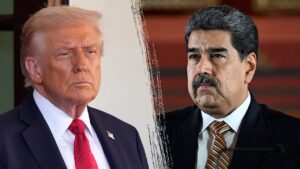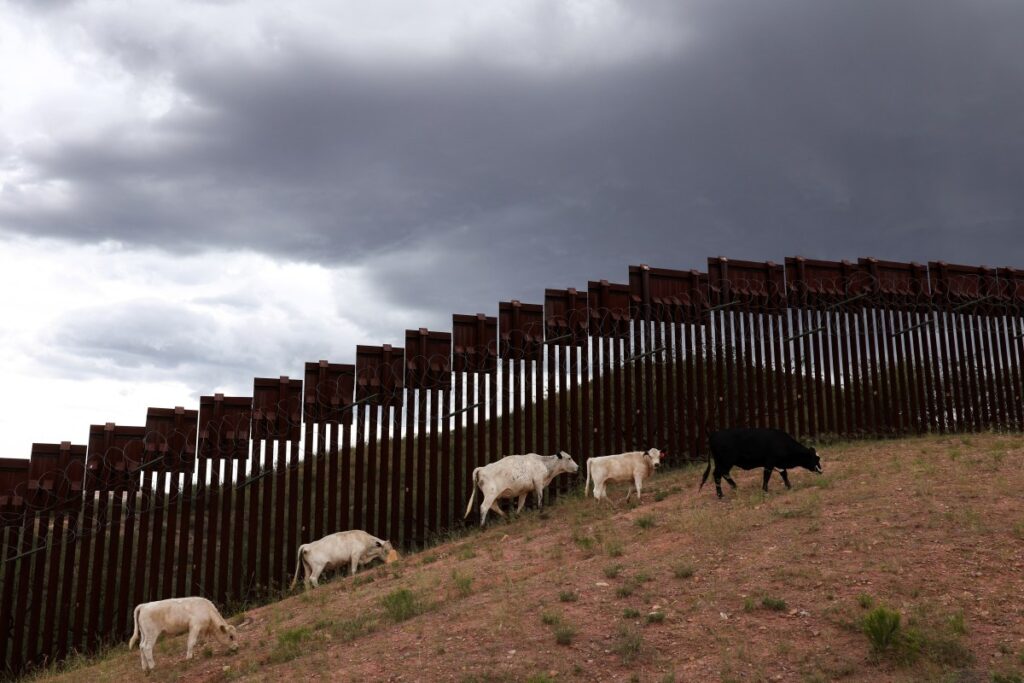Treasury Secretary Scott Bessent has claimed beef prices are rising because of immigrants bringing diseased cattle across the border.
Speaking to Fox Business Sunday, Bessent addressed reports that beef prices could hit $10 per pound next year, saying it was an issue ‚Äúinherited‚Äù by the administration due to long-standing factors.¬Ý
“There’s also, because of the mass immigration, a disease that we’d been rid of in North America made its way up through South America as these migrants brought some of their cattle with them,” Bessent said.
He added: ‚ÄúSo part of the problem is we‚Äôve had to shut the border to Mexican beef because of this disease called the screwworm.‚Äù¬Ý¬Ý
Why It Matters
Beef continues to be in high demand across the U.S., and rising prices are putting pressure on household budgets.¬Ý
While risks of screwworm infection have halted trade from Mexico, foreign supply makes up a small share of U.S. cattle, and evidence does not support Bessent’s claim that individual migrants are bringing in diseased cattle.
What To Know
Omaha Steaks President and CEO Nate Rempe told Fox Business that by next year, a pound of beef could cost $10 due to shrinking cattle herds and rising demands.
Rempe noted that cattle herds are at a 70-year low, which has come as a result of years of droughts that have reduced grazing land, along with higher expenses for raising livestock.
The September consumer price index data from the U.S. Bureau of Labor Statistics shows that various beef products rose between around 12 and 18 percent in the past year.¬Ý
The New World screwworm Bessent referenced — a parasitic fly that eats cattle and other warm-blooded animals alive — has been spreading in Central America and Mexico, and prompted Washington to suspend cattle imports from Mexico in May.
Around 1 million cattle come from Mexico per year, which makes up around 1 percent of the total cattle herd in the United States.
There have been no confirmed cases of infected cattle in the U.S. so far. Officials have said the risks of the parasite reaching U.S. cattle comes from the livestock trade, both legal and illegal, but have not said the risk comes from individual migrants traveling with cattle.
While screwworm concerns have affected cattle supply, experts have noted it is not the main driver of rising costs.¬Ý
Rempe said that ‚Äúforeign supply is part of the picture,‚Äù but noted that Argentine beef only makes up about 2 percent of the total beef supply in America.¬Ý
President Donald Trump has acknowledged the high price of beef, and has taken some steps to address it. This includes announcing plans to import more beef from Argentina, and signing an executive order rolling back the steep “reciprocal” tariffs on beef and other products that have seen price increases, as reported by CNN.
According to Fox Business, Trump also said he had directed the Department of Justice (DOJ) to investigate major meatpacking companies in the U.S., which he accused of driving up beef prices through “illicit collusion, price fixing and price manipulation.”
What People Are Saying
President Donald Trump told Fox News on November 5: ‚ÄúGroceries are way down, other than beef. Now, beef is going to come down. You know, we have to do that.‚Äù¬Ý
Treasury Secretary Scott Bessent told Fox Business on Sunday: “The beef market is a very specialized market, it goes in long cycles, and this is the perfect storm — again, something we inherited.”
What Happens Next
Beef prices are expected to stay elevated through 2026 as U.S. ranchers continue to rebuild herds. It remains uncertain whether easing import restrictions and tariff adjustments will eventually help bring costs down.
Read the full article here














